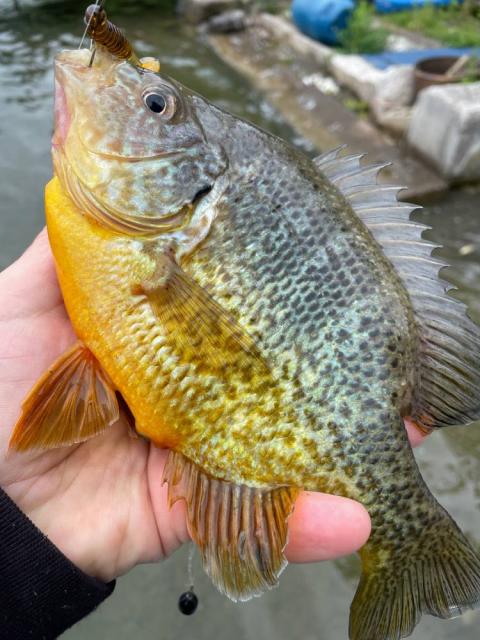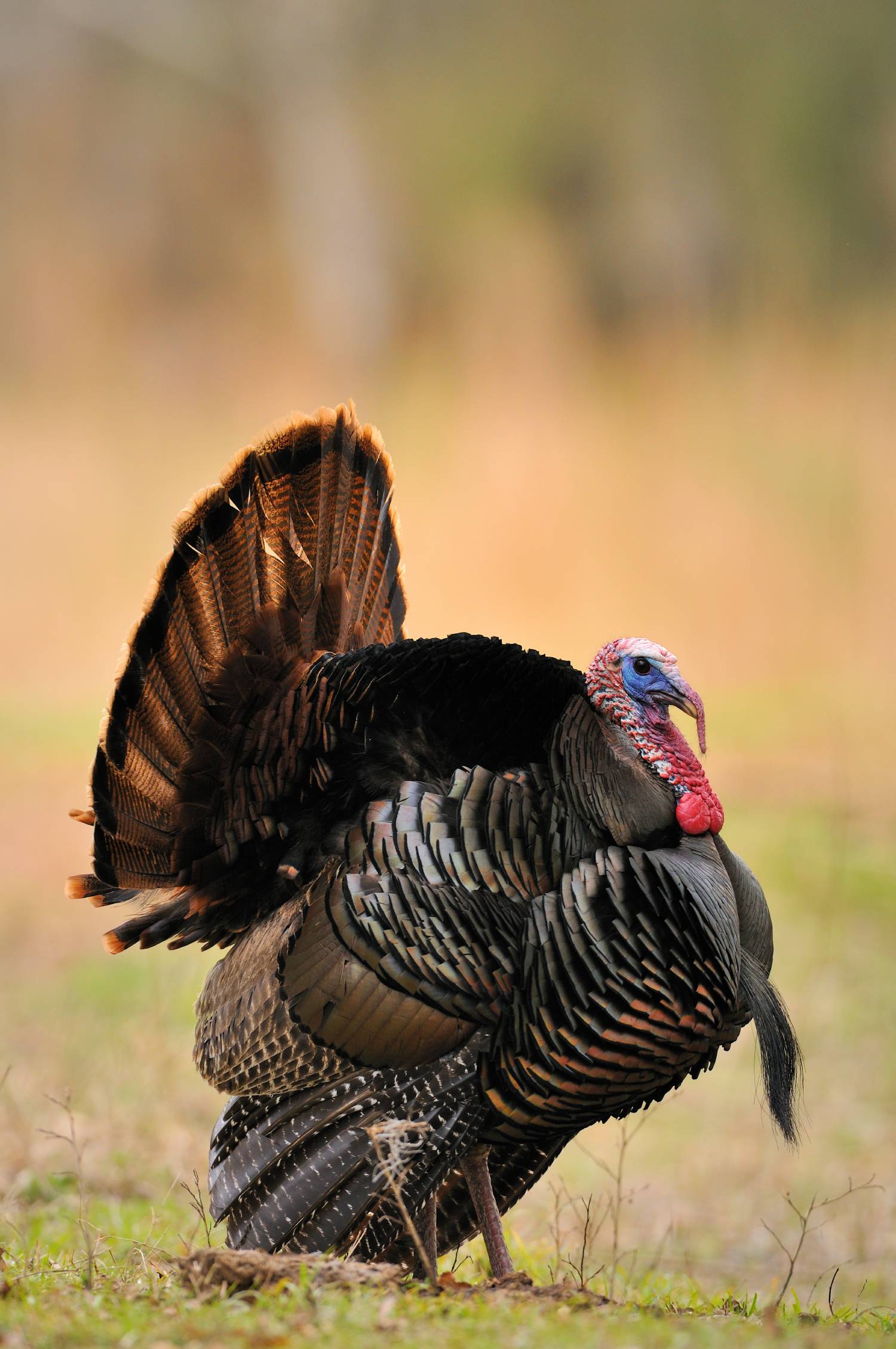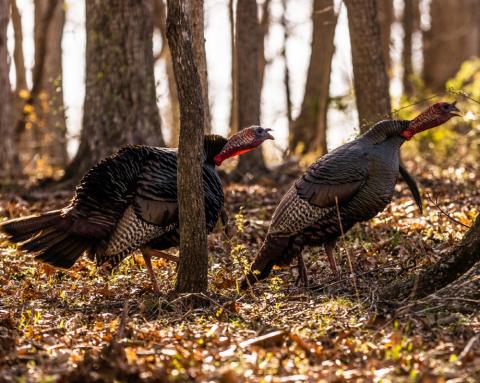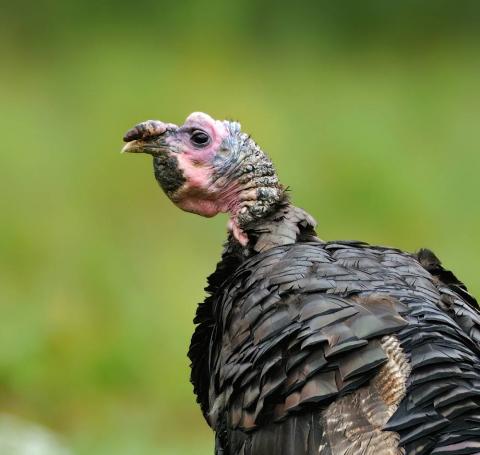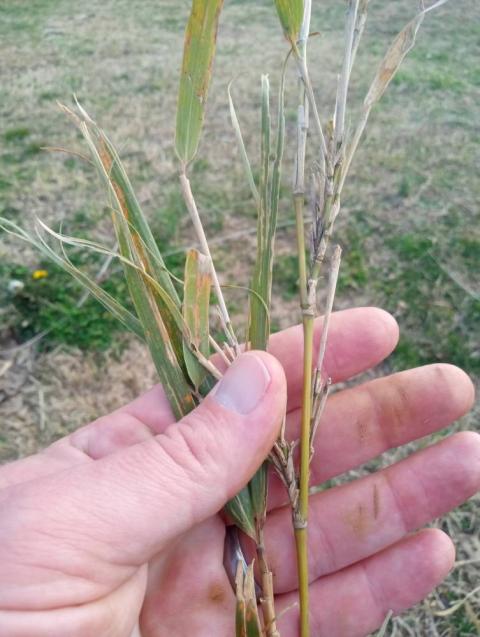Bob Humphrey
My first real hunting passion, (more accurately, obsession), was waterfowl. It was a great way to cut my hunting teeth for multiple reasons, not the least of which was learning to endure the elements. Being a lot younger then, I actually embraced the idea of bearing up to a blustery northeaster with sheets of rain coming down diagonally as ducks recklessly sought the false promise of friendship and safe harbors.
I wasn’t quite as eager to do the same during turkey season but the damage was already done. Besides, I knew, the birds are still out there, and you should be too. You just might want to modify your tactics a bit when battling both the birds and the elements.
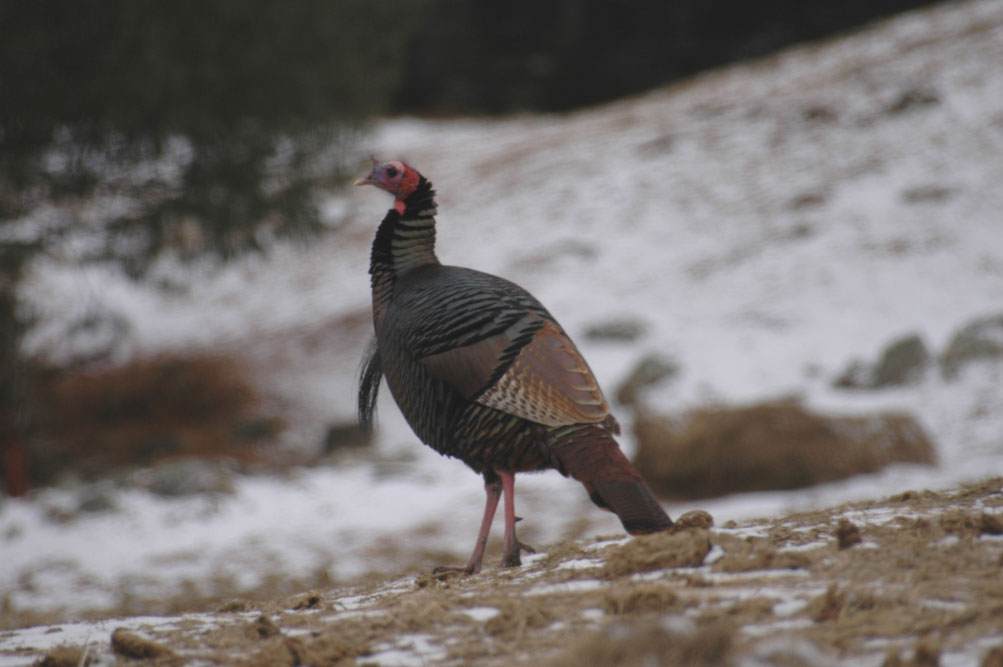
Be Patient - Patience is so important in turkey hunting and that’s especially true when hunting on windy and rainy days, especially the latter. On a typical day, the birds would be eager to pitch out of the trees and start their day. But in bad weather, they’ve likely been up all night enduring the elements. They’ll be more inclined to sit tight until it’s lighter, and while there, work on some much needed feather maintenance. They may be an hour or two late, but they will fly down, so don’t be in a rush to leave the field of battle.
Seek Open Spaces - Turkeys generally don’t like being in the woods in wet or windy weather, probably because it’s much harder for them to see or hear predators. They like to be in open places like fields and pastures, and where they might spend an hour or two there on a pleasant day, they may well be there all day in a storm. Here again, be patient and sit down, which may be easier to do when you can see the birds are present, even if they show no interest, at first.
Tone Down - Most hunters call too much anyway, but you really don’t need to, and probably shouldn’t call as much or as loudly in bad weather. The turkeys don’t talk much. They’re far more interested in consuming enough calories to keep warm than in courtship on cold, wet days. Aggressive calling just seems that much more unnatural and will probably do more harm than good.
Make Yourself Comfortable - For obvious reasons, this one cannot be over-stated. The more comfortable you are the longer you can endure inclement weather and wait out an eventual opportunity. Dress in moisture-wicking, insulating base and mid layers with a wind or waterproof outer shell, and hat. Even better, get in a ground blind. When I know it’s going to rain, my go-to tactic is usually to camp out inside a blind on the edge of a field. Another plus is that you can carry more comfort gear when you’re not running and gunning, like extra layers, hand and foot warmers and even a heater if necessary.
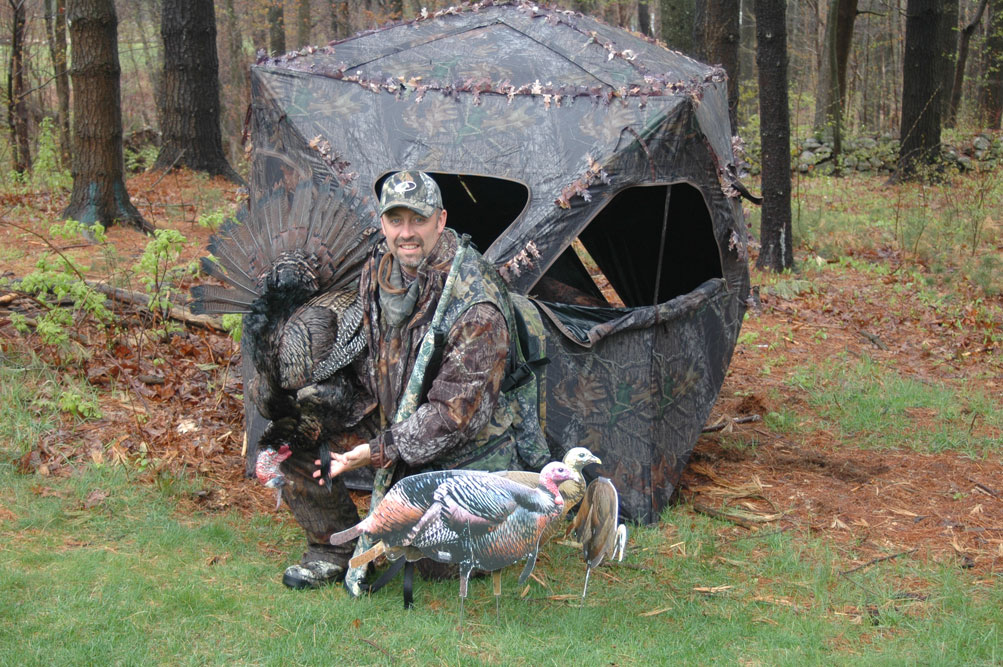
Stay Alert - Don’t get too comfortable. Turkeys could show up at any moment, and will be far less likely to announce their arrival. More than once I’ve had birds slip in close enough to almost look into the windows of my blind before I realized they were there. Remain vigilant, still and quiet.
Focus on Food - Expanding on the last one a little more, shift your attention more toward food sources than you normally might on nice days. Turkeys need more calories and if there’s a concentrated food source like remnant acorns or waste grain, a lush clover field or a chufa patch, they’re more likely to show up there and linger longer.
Be Flexible - Perhaps most important is to remember these are guidelines, not rules. Turkeys don’t follow rules, they break them. Do not be surprised if even in the foulest weather some birds behave as if nothing is wrong, gobble their heads off at dawn, fly down and blow up into strut and march determinedly into your decoys. Then, not only does your hunt end successfully, it ends early so you can go home and dry off.


















